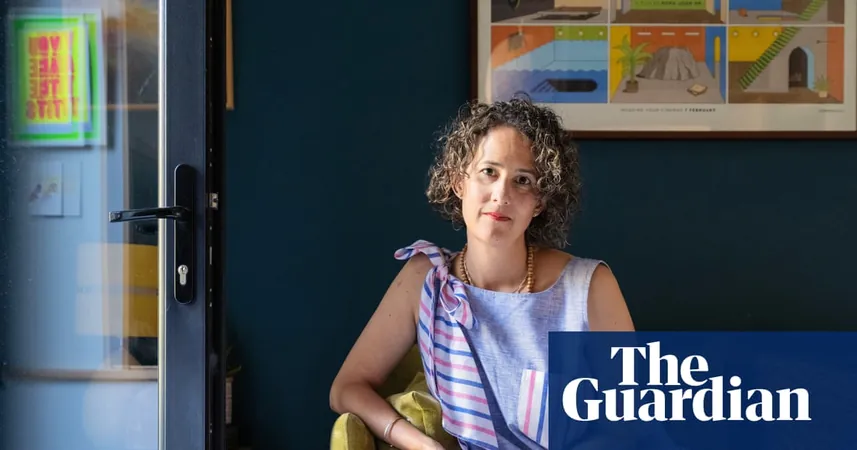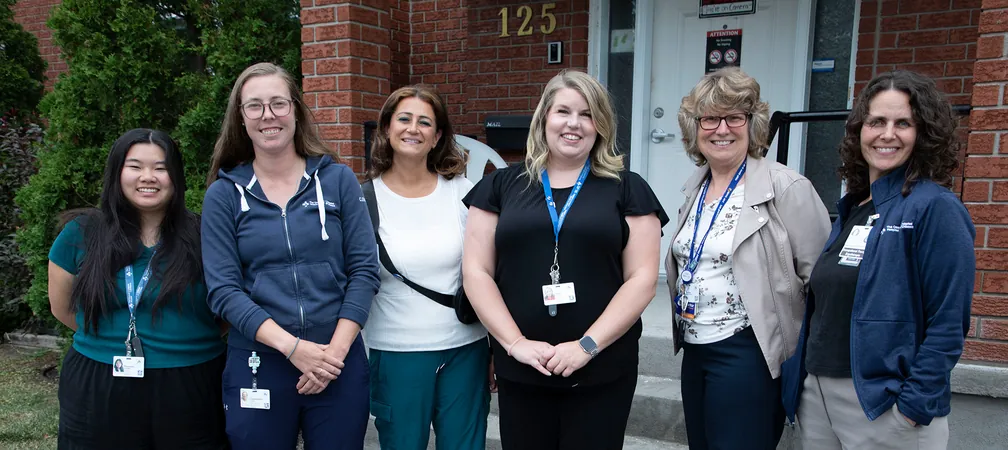
Cancer Isn't Just for Smokers: The Shocking Rise of Lung Cancer in Young, Healthy Women
2025-09-14
Author: Noah
In late 2019, Becca Smith was living her dream at just 28 years old—building a yoga studio, working as a personal trainer, and juggling a packed schedule. But amidst the chaos, she struggled with persistent back pain that no healthcare provider could properly diagnose.
Her life took a drastic turn in March 2020 when debilitating pain forced her into bed. A visit to the optician revealed alarming signs of hemorrhaging, leading to a hospital admission where doctors delivered devastating news: stage four lung cancer that had metastasized to her brain and spine, with a prognosis of just two weeks left to live.
The Old Stigma vs. A New Reality
Lung cancer has long been seen as a disease primarily affecting older male smokers, often overlooked in funding and research. However, recent data paints a different picture: young, fit, non-smoking women are increasingly diagnosed with this disease. Surprisingly, nearly 68% of non-smoking lung cancer cases are women, with many diagnosed only after the cancer has spread significantly.
Rising Numbers: What's Behind This Shift?
Dr. Alex Georgiou, an oncologist, tracked the alarming increase of non-smoking lung cancer cases. From just 5% of patients in 2010, the number soared to 14% by 2021, raising critical questions about why this demographic is facing such dire health challenges.
Younger patients, particularly women, are not only being diagnosed later but are also exhibiting different cancer biology compared to their smoking counterparts. This shift deserves urgent attention, especially as two-thirds of non-smoking patients present at advanced stages.
The Role of Genetics and Environment
Cecilia Pompili, a thoracic surgeon, points out the lack of research diversity where young women were often excluded from clinical trials. Investigations are now underway to understand how genetic mutations, particularly in non-smokers, contribute to rising lung cancer rates. Hormonal factors and environmental triggers like air pollution are also suspected culprits.
Rosamund Adoo-Kissi-Debrah, who lost her daughter due to air pollution, stresses the need for awareness surrounding environmental risks that disproportionately affect socioeconomically disadvantaged groups.
Real Stories: Young Women Battling Lung Cancer
Sarah Li, a 42-year-old filmmaker and non-smoker, experienced similar symptoms—persistent cough and shoulder pain—mistaken for allergies until a diagnosis revealed EGFR-positive lung cancer. Despite her active lifestyle, she found herself grappling with life-altering treatment decisions.
After several therapies, Sarah highlights how cancer changed her perspective on life: "I appreciate little moments so much more now," she says.
Treatment Advances and Ongoing Challenges
Both Smith and Li are now experiencing the rapid evolution of lung cancer treatments, including targeted therapies that were once not available. Yet, as their stories unfold, the emotional toll and societal misconceptions surrounding their diagnoses challenge them daily.
"People often reply, ‘But you don’t smoke!’ or ‘You’re so young!’" notes Smith, highlighting the stigma that still envelops lung cancer. Despite it being responsible for more female deaths than breast, ovarian, and cervical cancers combined, the support network is still lacking.
Living in the Moment: The New Normal
Today, Becca teaches Pilates and dreams of future adventures. After a meaningful proposal during a summer getaway, she reflects on her journey: "It's the little things in life that truly matter now. It’s about family, friends, and cherishing the moment. I’ve learned to be grateful for each day, even amid the uncertainty."
As we witness this provocative shift in lung cancer demographics, it underscores the urgent need for more research and awareness. The stories of women like Becca and Sarah urge us to rethink lung cancer's narrative and ensure no one is left in the shadows.









 Brasil (PT)
Brasil (PT)
 Canada (EN)
Canada (EN)
 Chile (ES)
Chile (ES)
 Česko (CS)
Česko (CS)
 대한민국 (KO)
대한민국 (KO)
 España (ES)
España (ES)
 France (FR)
France (FR)
 Hong Kong (EN)
Hong Kong (EN)
 Italia (IT)
Italia (IT)
 日本 (JA)
日本 (JA)
 Magyarország (HU)
Magyarország (HU)
 Norge (NO)
Norge (NO)
 Polska (PL)
Polska (PL)
 Schweiz (DE)
Schweiz (DE)
 Singapore (EN)
Singapore (EN)
 Sverige (SV)
Sverige (SV)
 Suomi (FI)
Suomi (FI)
 Türkiye (TR)
Türkiye (TR)
 الإمارات العربية المتحدة (AR)
الإمارات العربية المتحدة (AR)